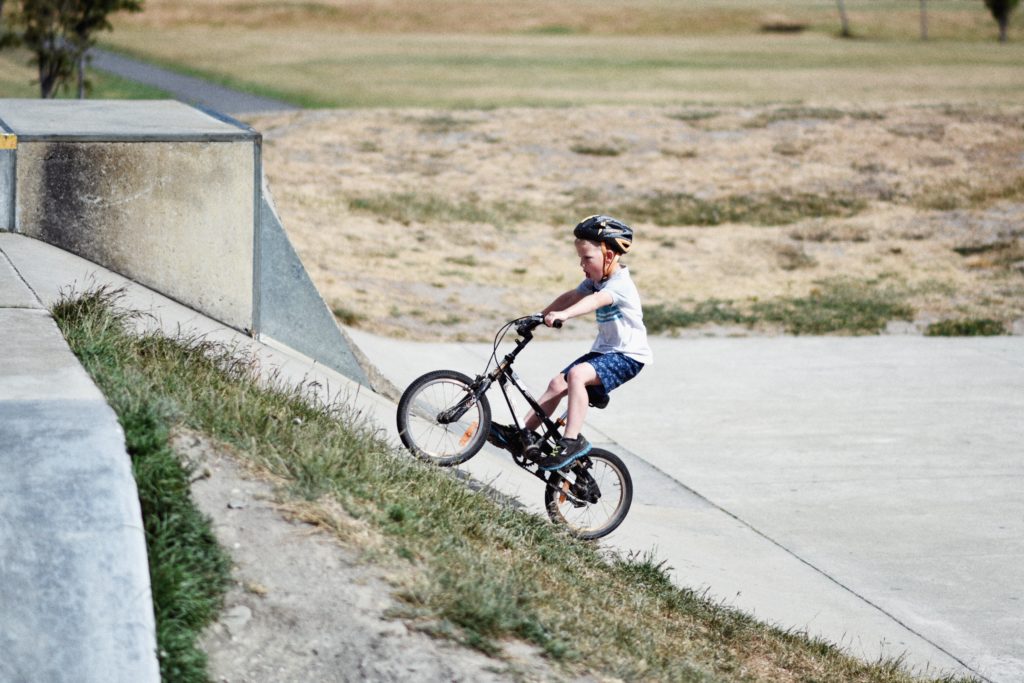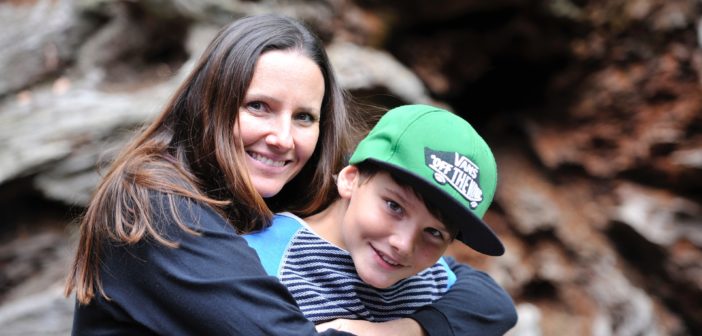Dealing with “bad” or undesirable behaviours in children is one of the epic parenting struggles.
At the risk of oversimplifying, parental discipline seems much more fraught than in decades past where you just got a smack and sent to your room.
There are so many expert views on how parenting should manage children’s bad behaviour it can be hard to know what to do. Then of course, is the major factor that every child is different and responds differently to discipline.
I, for one, am often caught in a viscous cycle of trying to parent mindfully but at some point realising I’m failing miserably. I inevitably lose my cool completely. Most days, I’m convinced I’m doing my children more damage than good. However, I’m sure the older generations in my family think I’m far too soft on my kids.
It feels like a lose-lose situation.
Then I came across this interview with parenting educator and author Katherine Reynolds Lewis.
She has an interesting perspective on parenting which makes a lot of sense. She talks about how children today struggle with self-regulation.
Katherine explains that this lack of self-regulation and resulting bad behaviour stems from 3 things:
- Changes in how, when and where kids today are allowed to play
- Increased exposure to social media & technology
- Lack of meaningful activity or “employment” in the form of chores etc.
All of these things certainly ring true for my kids, and most families I know.
Our kids are heavily restricted on where and how they play. The majority of kids aren’t allowed to roam freely until the street lights come on like generations past. We keep our kids close and often facilitate much of their down time.
When not in structured activities such as school, out of school hours care, sports, music lessons or supervised play dates, kids spend a lot of time engaged with technology. Here they are exposed to social media and, undoubtedly, influences that can impact their attitudes and behaviours.
A lot of modern parents also feel guilt around giving their children jobs or chores around the house. If they do contribute in these ways, they often are rewarded via pocket money, screen time or other privileges.
Katherine Reynolds Lewis suggests to allow our children to learn how to self-regulate we need to do some relatively simple things:
Let them take risks
Lewis cites studies on phobias and anxiety that show exposure to challenging or traumatic experiences actually helps build resilience and tolerance while avoidance makes anxiety worse. To help our children learn and grow we need to stand back and let them take risks.

Give them responsibilities
All children should contribute to the running of the family and household. Chores can include helping prepare meals, housework, yard work or helping with younger children. This will not only teach them responsibility but also build their self-confidence and their sense of commitment to the family.
Let them have some control/autonomy
Rather than nagging or directing them, let your child know your expectations and give them some control over how things happen.
Kids are so driven by what’s fair and what’s unfair. And that’s why the more power you give kids, the more control you give them, the more they will step up.” – Kathryn Reynolds Lewis
Be careful with rewards
If kids are always bribed or prompted with rewards to do things, they will never learn about intrinsic rewards and do things because they get a sense of satisfaction from them. Also, often the novelty of rewards can wear off.
Be careful with punishments
Lewis recommends following the 4 R’s of consequences:
- Revealed in advance,
- Respectful,
- Related to the decision the child made, and
- Reasonable in scope.
She also reminds parents it’s ok not to always respond to your child’s behaviour immediately, especially if you haven’t followed the 4 R’s above. Otherwise, we can dish out consequences or say things we regret later. Sometimes we need to walk away and address the issue later, especially if we have been triggered by the child’s actions. The child may also respond to receiving consequences once they have calmed down.
In fact, taking a big step back seems to underlie much of what Lewis recommends about parenting and dealing with behaviour. She stresses that children will never learn self-disciple or self-regulation if their life is being managed by their parents.
What do you think? Do parents tend to have too much control over kids’ lives these days? Do you think we need to let them work things out for themselves sometimes?

